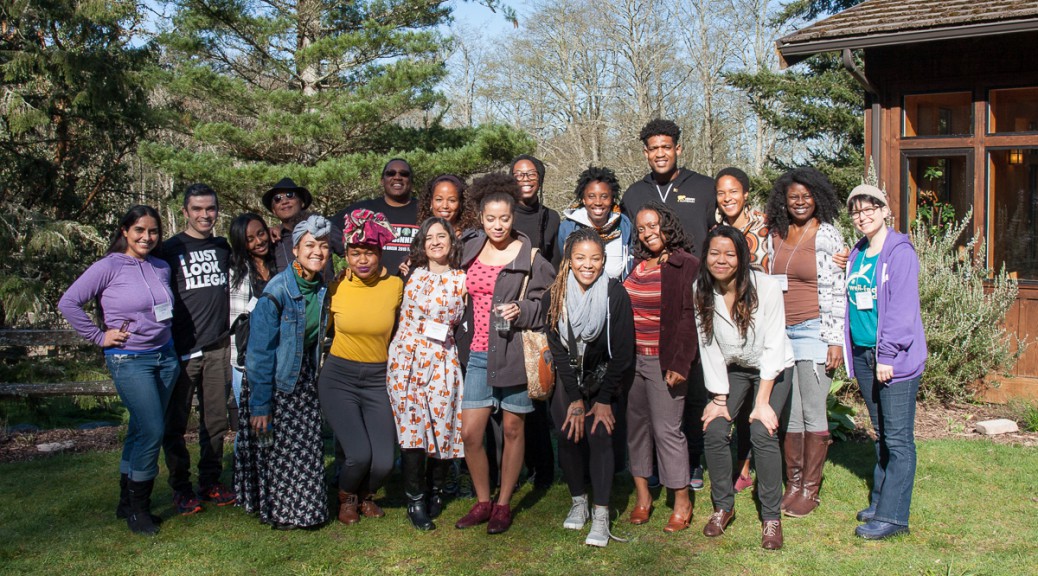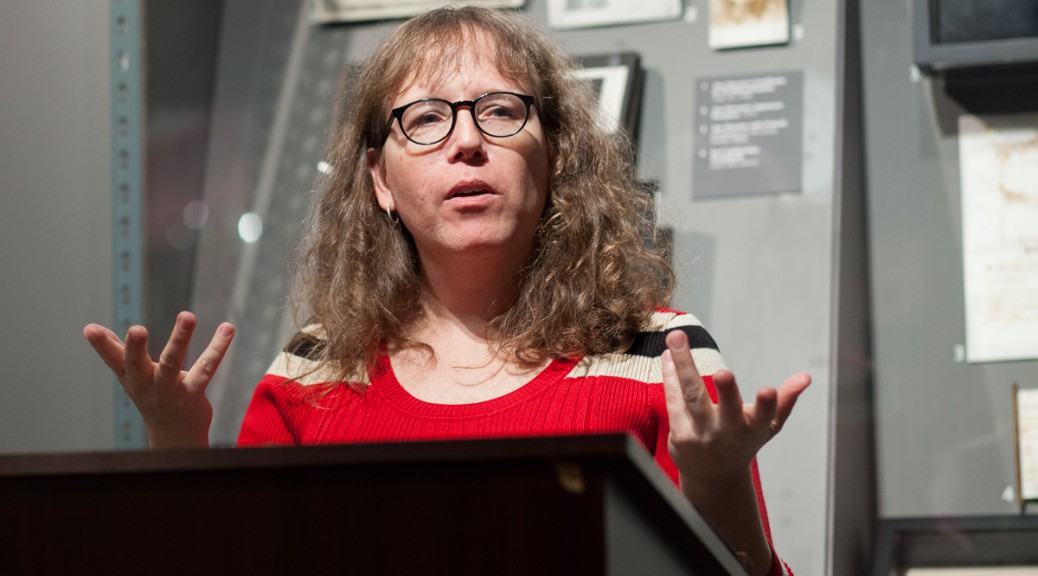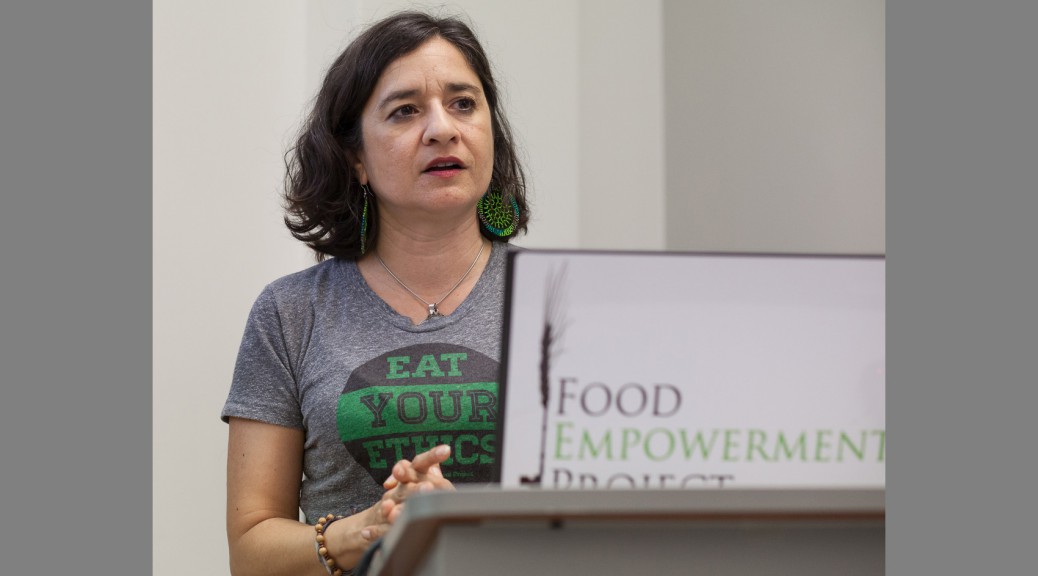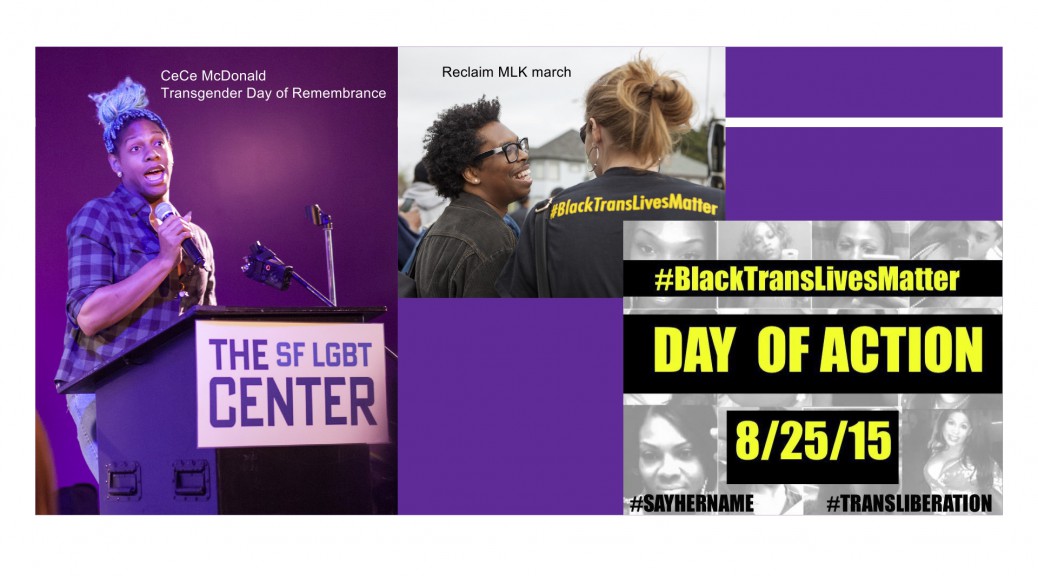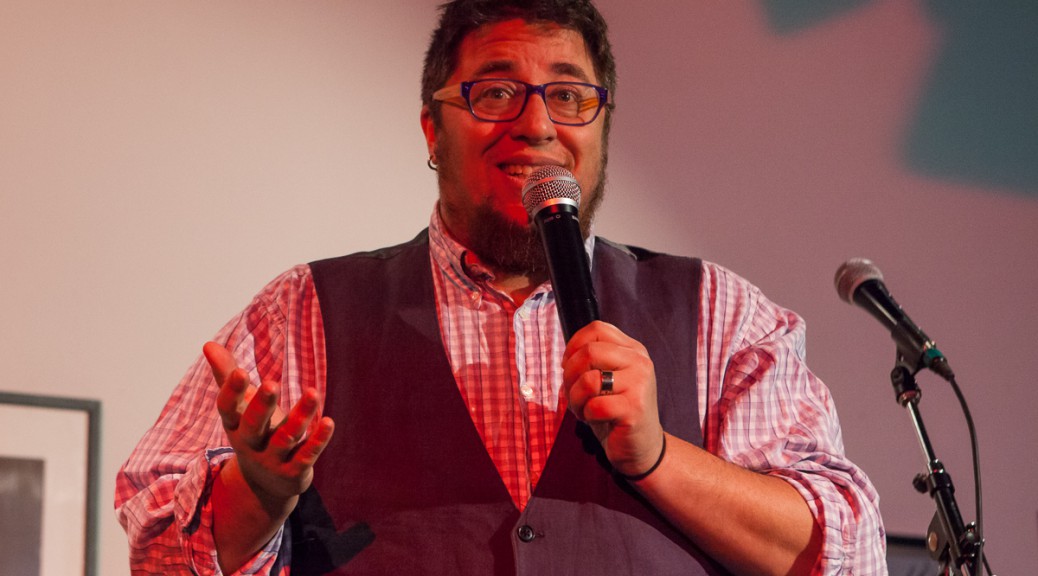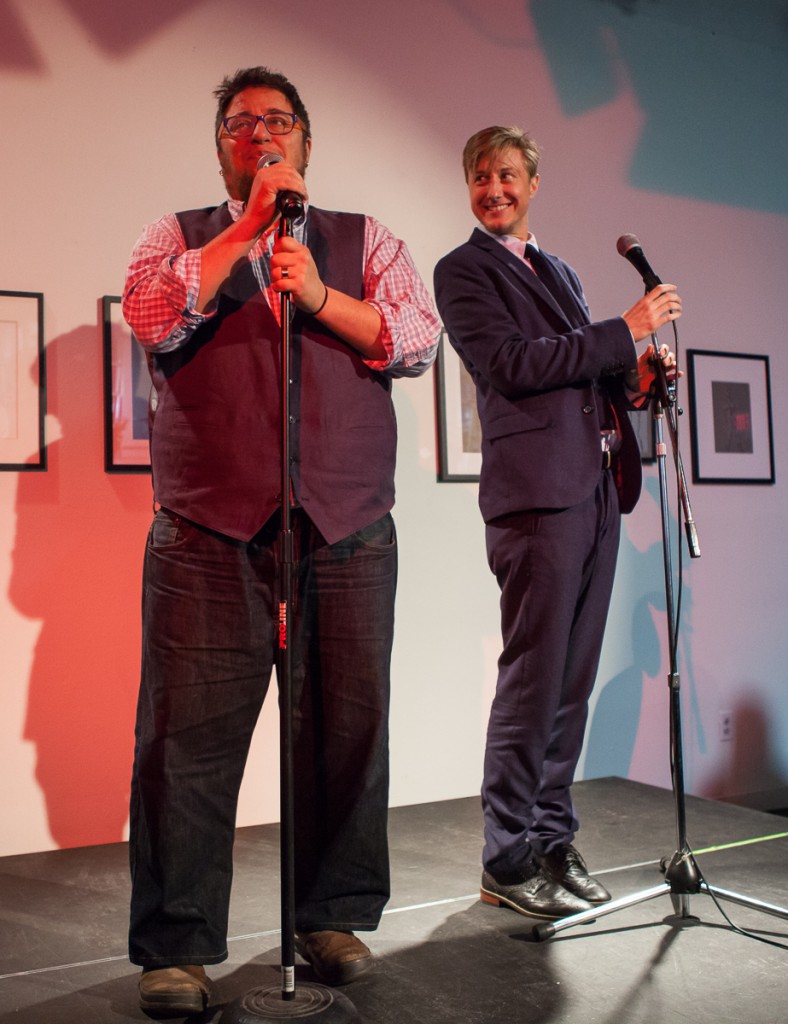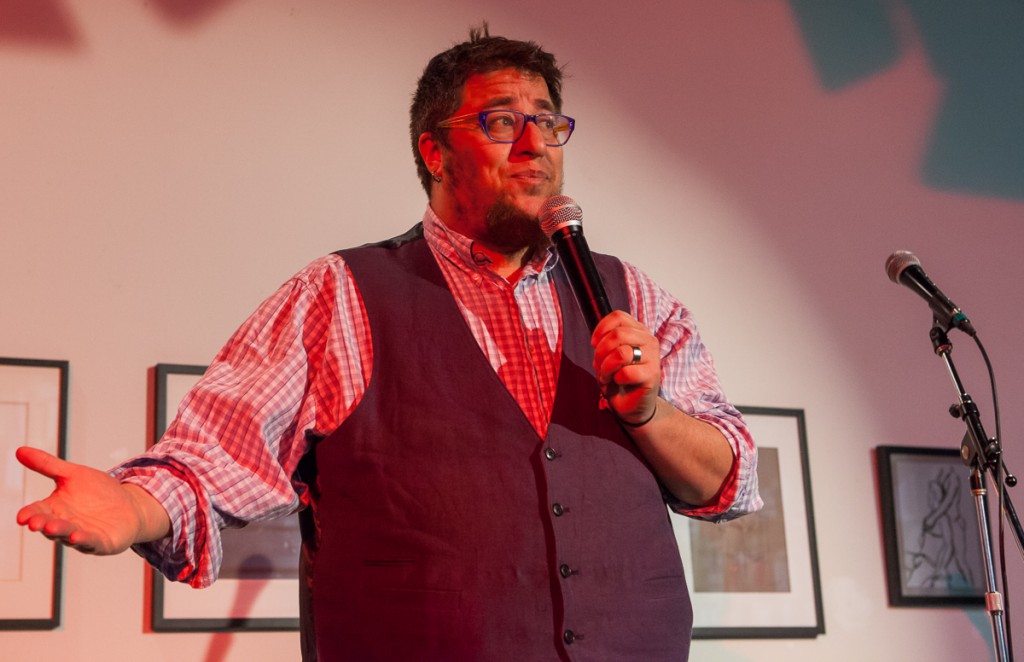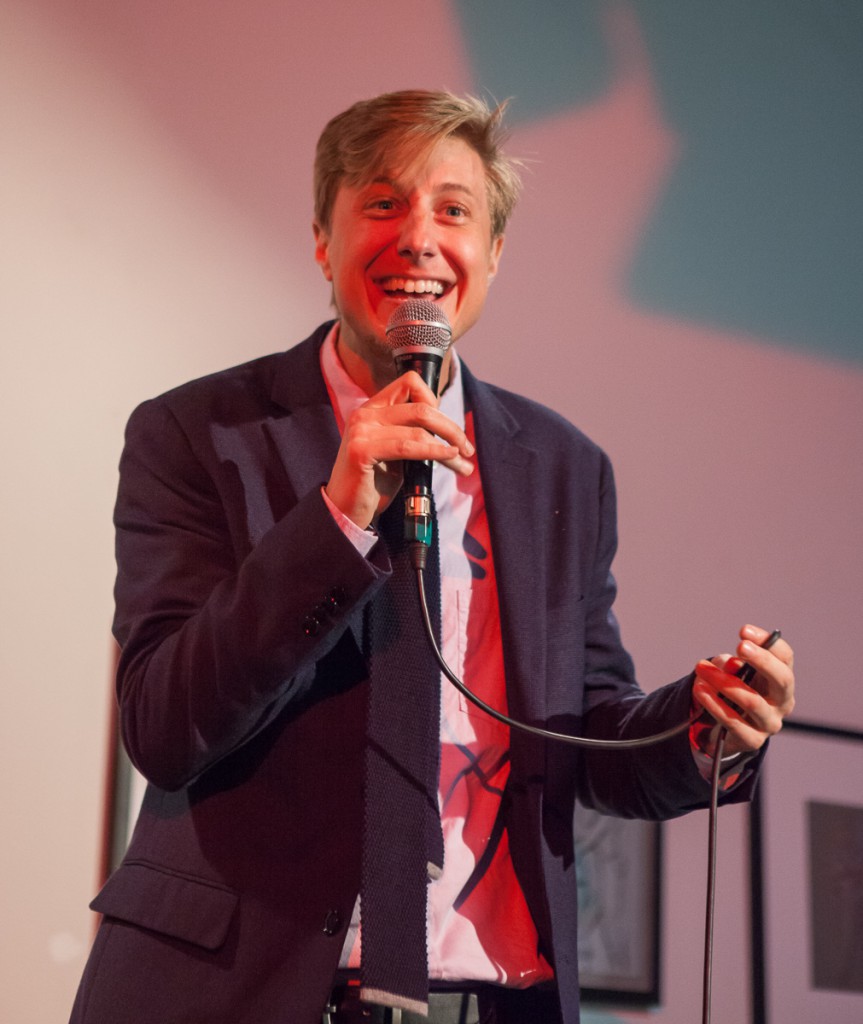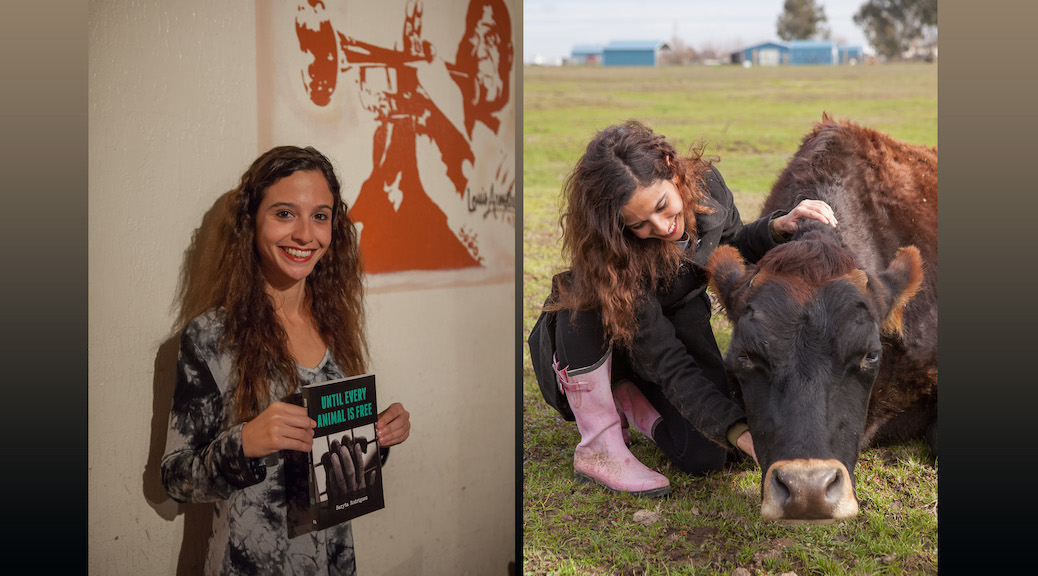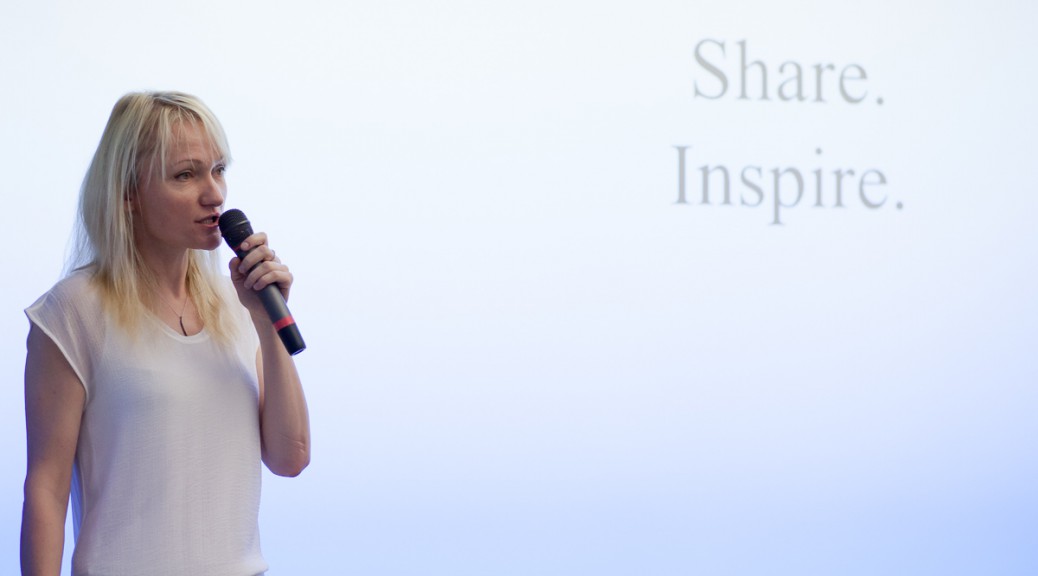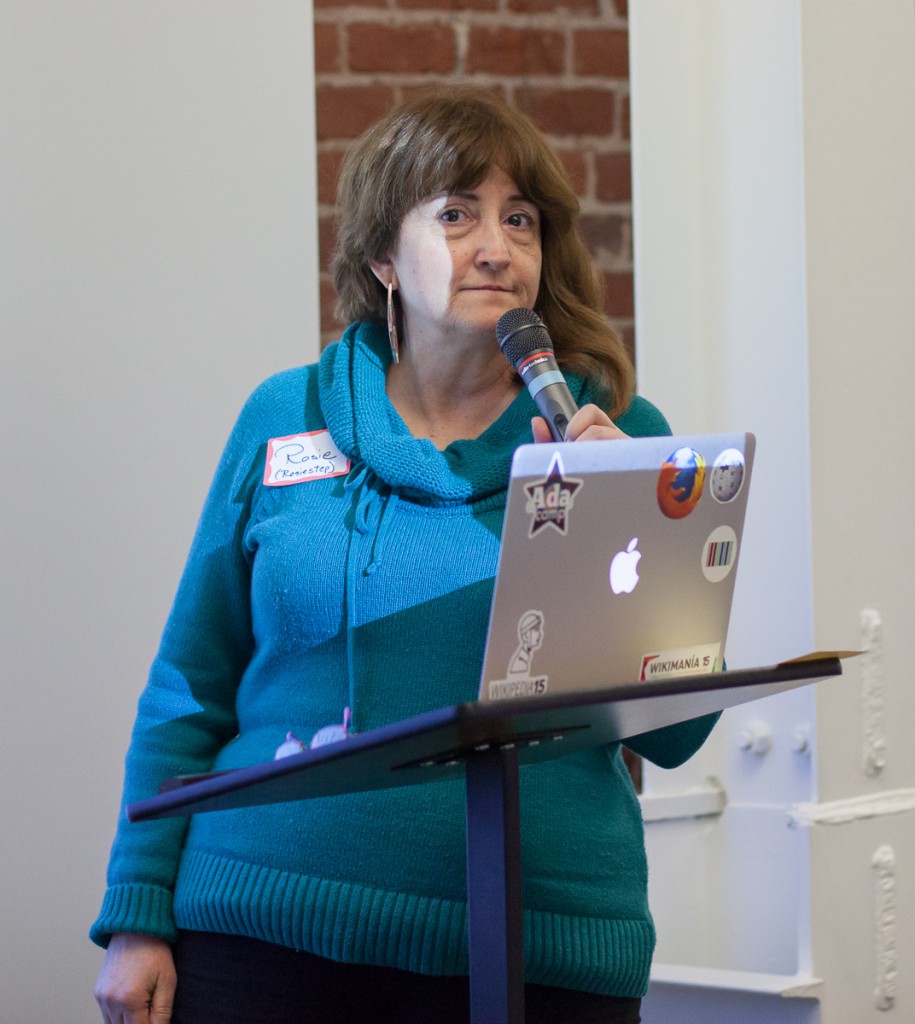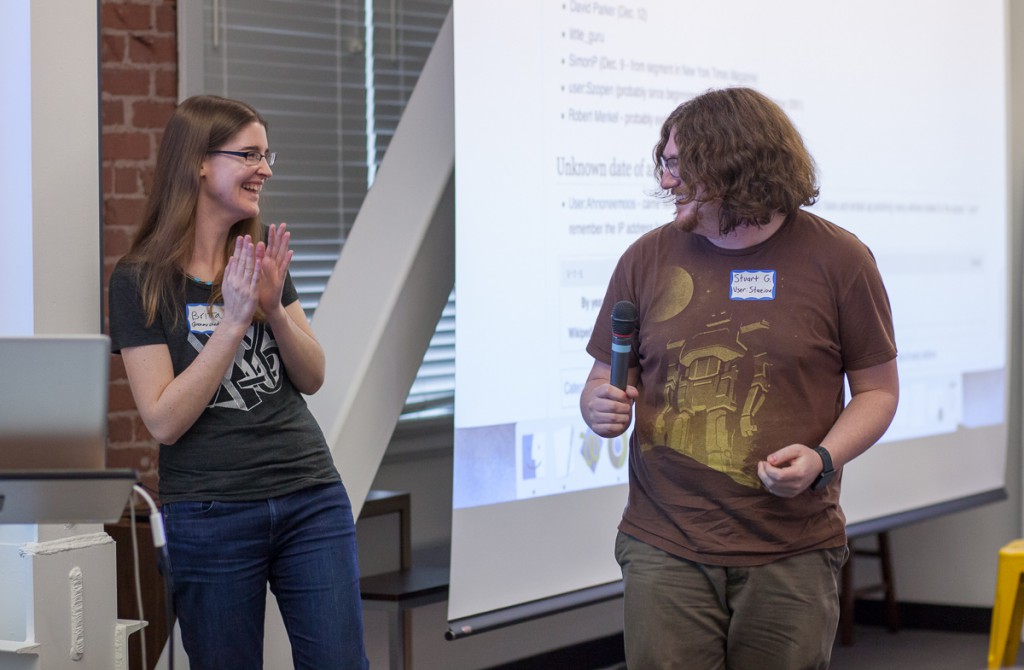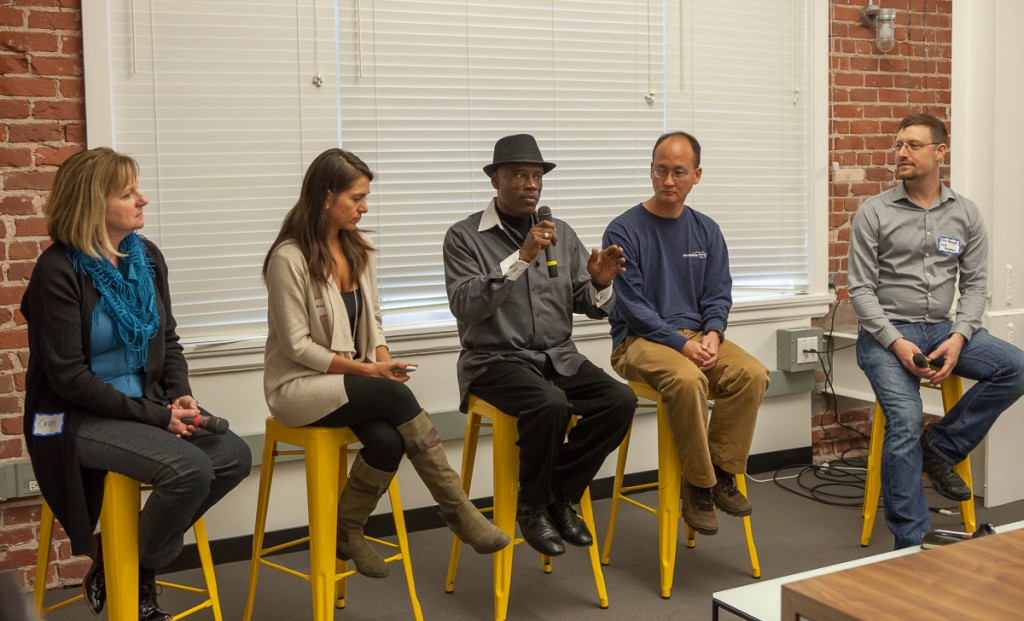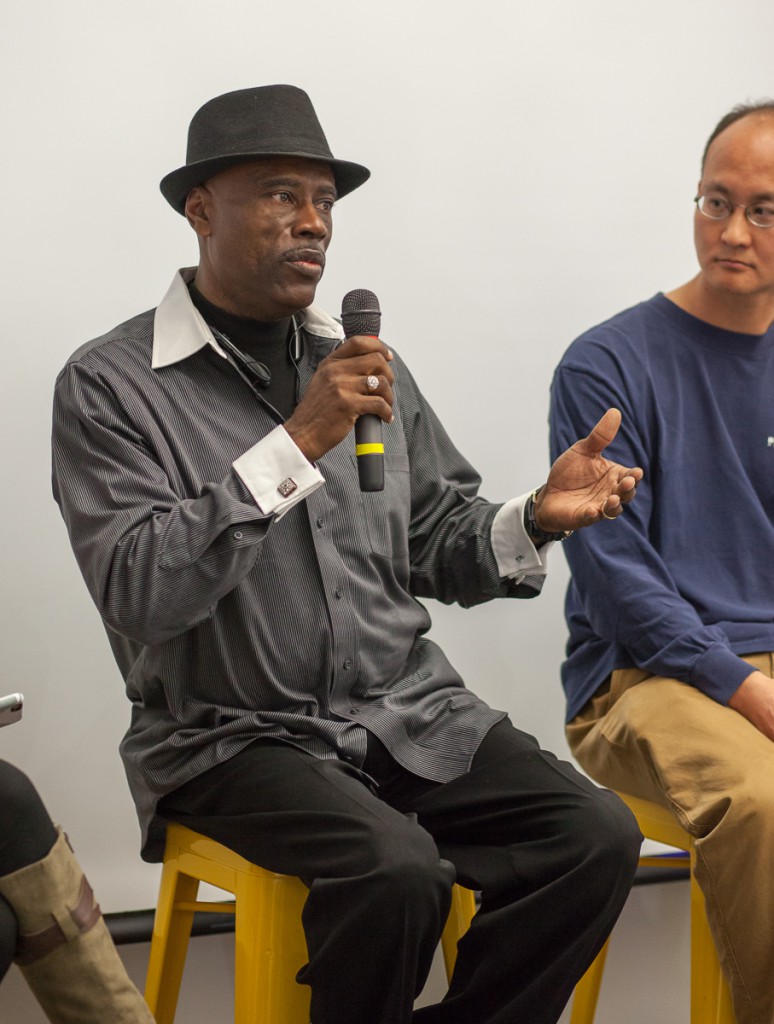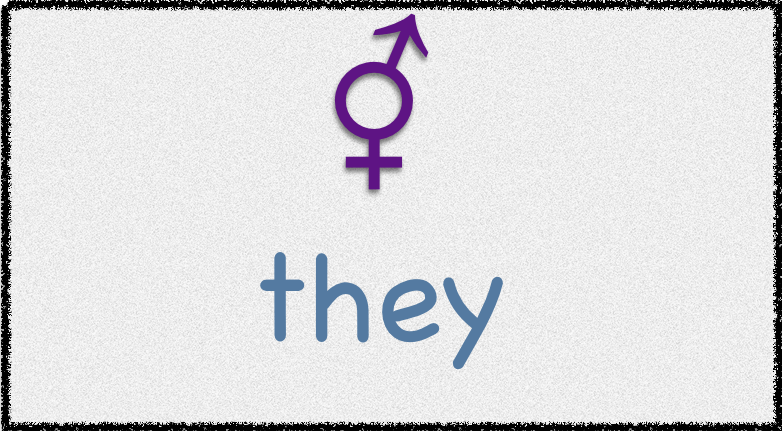[Image: Left: Saryta at Souley Vegan restaurant, standing in front of a poster of Louis Armstrong while holding her book, Until Every Animal is Free. Right: Saryta pets Brahma, a bull at PreetiRang Sanctuary.]
 [Image: Black and white headshot of Saryta, by Sophie Jane Stafford.]
[Image: Black and white headshot of Saryta, by Sophie Jane Stafford.]
Recently I had the pleasure of reading a wonderful book about animal liberation, Until Every Animal Is Free, written by my friend Saryta Rodriguez. Saryta and I met when we were both active with Direct Action Everywhere (though neither of us is currently) and their affinity group, Animal Liberationists of Color. During that time, she edited the three blog posts I wrote for The Liberationist.
Through both personal stories and well-cited research, Saryta’s book makes a solid case for veganism and animal rights activism. While I needed no convincing on those fronts, I learned new facts and perspectives that will be helpful in my own activist work. Her web site contains additional helpful resources and information that didn’t make it into the book.
I asked Saryta if I could send her some interview questions over e-mail, focusing on topics that were not directly covered in her book. For example, Saryta is agender; like me, she doesn’t associate that identity with a stereotypical “androgynous” gender expression. Saryta answered my questions with great enthusiasm; I’ve included her full responses below, interspersed with photos from our recent visit (along with my partner Ziggy) to PreetiRang Sanctuary. (The full set of photos is available on Flickr.)
As a fellow agender person, does having a non-binary gender identity give you any insights into the human/non-human binary that is often used to justify the exploitation of animals?
Ever since I was a child, long before I understood my gender identity and even longer before I went vegan, I always thought it was strange for us to draw such a divide between humans and nonhumans. I’ve often been accused of being overly literal— of zeroing in on the slightest nuance of a given word or phrase, of insisting on precision in language and communication. (My partner finds this very annoying.) I remember learning when I was maybe eight or nine years old of the classical scientific kingdoms: Animalia, Plantae, Fungi, Protista, Archaea and Bacteria. Humans, like pigs, cows, and chickens, exist squarely in the Animalia kingdom. We do not have our own kingdom. Period.
So in a very literal sense, leaving aside the spiritual and the emotional for a moment, humans are animals. To me, it really is that simple.
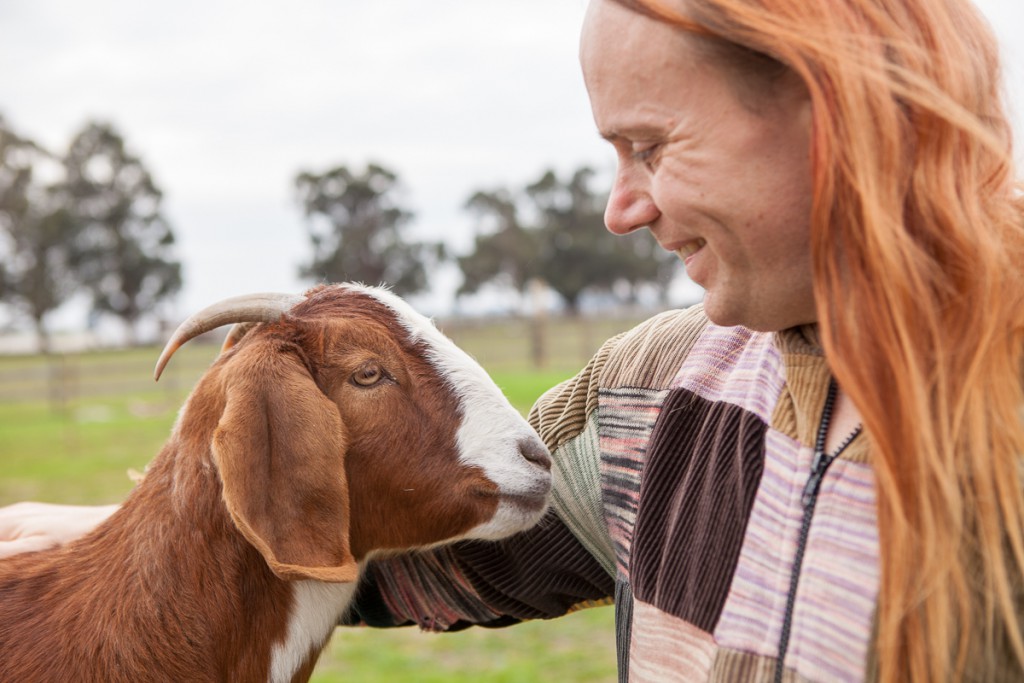 [Image: Close-up of Ziggy smiling at Geeta, a goat at PreetiRang Sanctuary.]
[Image: Close-up of Ziggy smiling at Geeta, a goat at PreetiRang Sanctuary.]
With respect to binary systems in general, I feel that they are all alike in that they serve to otherize those who are in some way deviant from the norm, so as to make their exploitation more palatable. One thing I also remember learning around 8 or 9 years of age is that “Women have XX chromosomes” and “Men have XY chromosomes.” This was how sex, with which many conflate gender, was first defined to me. Two options—XX or XY. Nothing in between.
I later learned, of course, that this is far from the case. For starters, many individuals have genetic makeups that are neither XX nor XY. Furthermore, even among those with XX or XY, there are other differences that affect their sex and in some cases, their gender identity. Exposure to hormones such as androgen in the womb is one example, but there are others. Even with respect to genitalia, to summarize that “Men have penises” and “Women have vaginas” is misleading, because it suggests that every human being on the planet was born with either a penis or a vagina, when some are born with parts of both.
I do see a clear parallel between this and the many ways in which humans otherize nonhumans— everything from “We have thumbs and they don’t,” which is immediately disproven by nonhuman primates, to “We have art and culture and all these high-brow elements to our society that nonhumans don’t,” which is challenged by the bowerbird, among others.
(The males in this species erect bowers, not to live in or for any other practical purpose, but strictly to appeal to the aesthetic sense of females. Possession of an aesthetic sense— the ability to discern between what is “beautiful” and what is “ugly”— has long been heralded as a distinctly human characteristic.)
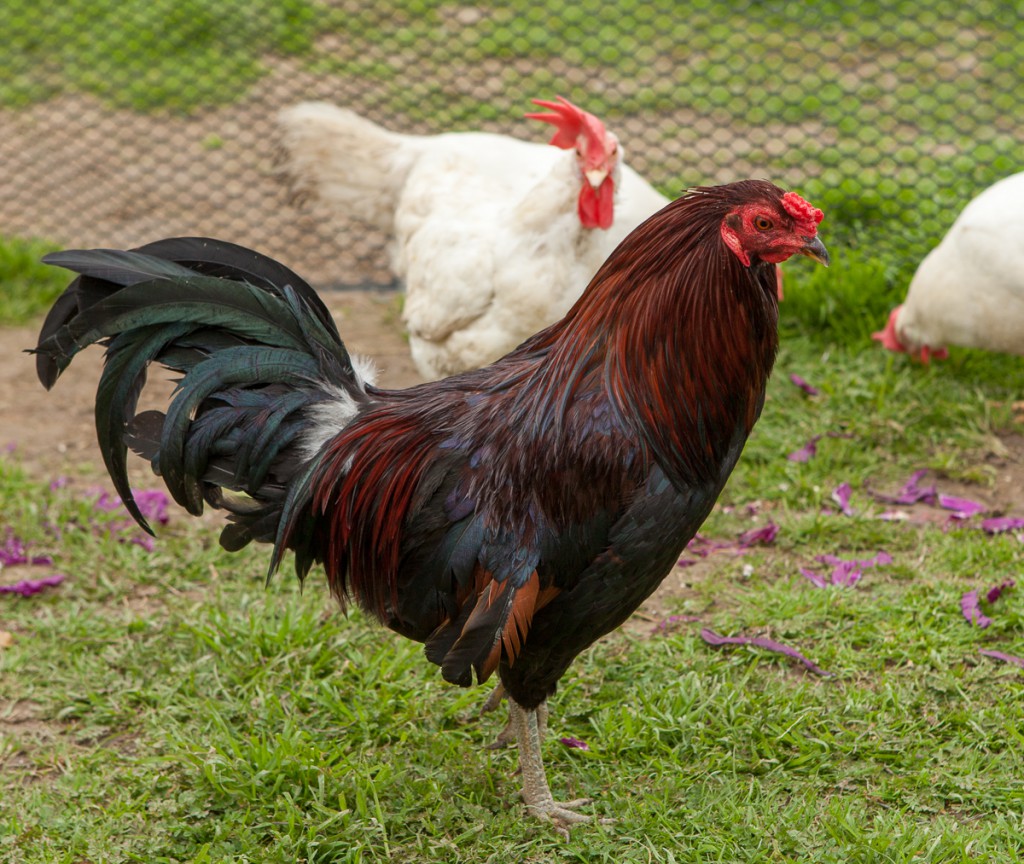 [Image: Bertha, a colorful rooster at PreetiRang Sanctuary. White hens are in the background.]
[Image: Bertha, a colorful rooster at PreetiRang Sanctuary. White hens are in the background.]
Ultimately, such distinctions serve the purpose of legitimizing violence and exploitation, as if we can convince ourselves that someone is “not like us” in ways that we find meaningful— such as our cognitive abilities and our abilities to experience pain and fear—then we needn’t concern ourselves with their wellbeing in the same manner as we concern ourselves with our own wellbeing. We can tell ourselves that the suffering we cause others is not really suffering, because no one else is capable of truly suffering— because that is unique to us.
While the connection to violence and exploitation may not seem immediately apparent between nonhuman animals and agendered persons (I admit I have been very fortunate to have never faced either due to my gender identity), a more obvious connection perhaps is with respect to invisibility. Just as many contend that the perspective of nonhumans need not be considered because they don’t exist precisely as we do, so too are agendered individuals often told— either directly (by an individual in our lives) or systemically (by the media, our employers, and so forth)— that we “do not exist.” That there’s “no such thing” as the very thing that we are. This I have been told, many times, as well as when I first admitted to a friend that I was pansexual. She insisted that I was either a straight person going through a phase or a lesbian in denial. She was incapable of acknowledging any in-between, and while at the time I felt differently, today I can hardly blame her. I’m probably the first and may still be the only pansexual she’s ever met, and this wasn’t something people talked about back then, like they do now. When I was in high school kids rarely even came out as gay or lesbian, and no one that I’m aware of ever came out as anything else.
By rendering members of our society invisible, be they outside of the gender binary or simply one of the many forms of animal that is not human, we do them and ourselves a disservice. We not only commit injustice upon injustice against them, but we also shortchange ourselves from the benefit of their experiences. We miss out on an opportunity to learn from those with whom we share the planet. We stunt our own evolutionary development— remain mired in archaic modes of thinking and acting.
As a pansexual person, have you experienced or witnessed heterosexist oppression or micro-aggressions from other animal rights activists?
Have I ever! Although I have to say, I have more experience witnessing sexism more generally— cis-male domination— than heterosexism specifically, which I understand to refer to domination by straight people. But one form of microaggression I have witnessed as a pansexual, agender person of color over and over again is tokenization. I have seen, over and over again, animal rights organizations herald this or that activist as a tremendous asset to their work…When it’s convenient to do so. But should the same activist voice concern that racism, sexism, heterosexism or any other nasty –ism is slowly infecting the network, that activist is hung out to dry. If not kicked out directly, they may be given fewer tasks to complete. They may find that initiatives they spearheaded— including ones they conceived of themselves, without which they would not be happening at all— are handed over, without any explanation, to someone who in some way better fits societal norms (i.e. taking something from a POC and giving it to a white person, taking something from an agender person and giving it to a man or a woman). They are featured less and less in videos, blogs or other forms of media after speaking up about these behaviors.
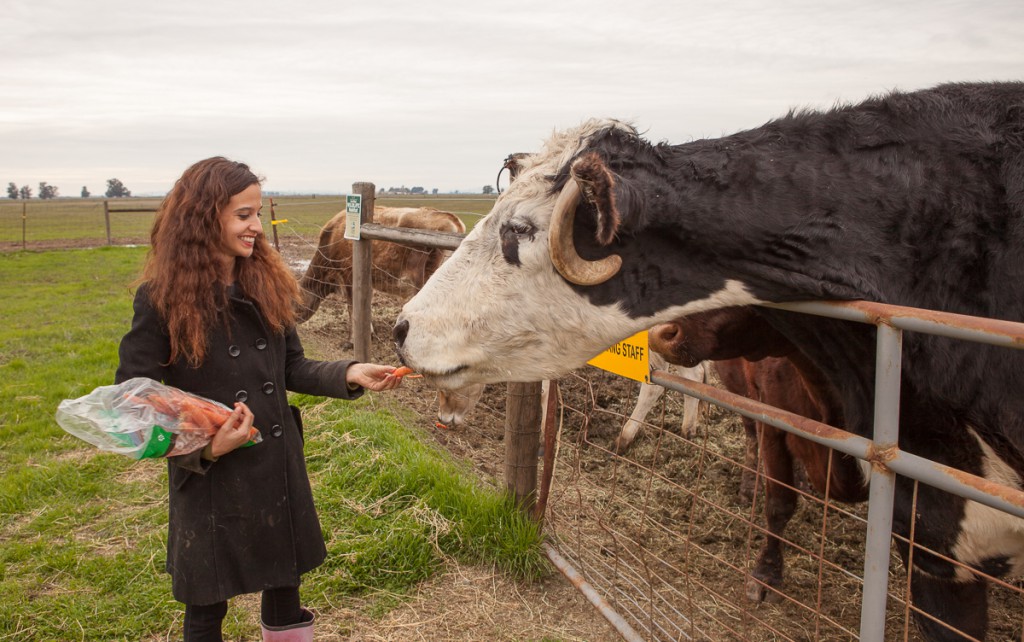 [Image: Saryta feeds carrots to Chester, a bull at PreetiRang Sanctuary.]
[Image: Saryta feeds carrots to Chester, a bull at PreetiRang Sanctuary.]
A common response in AR circles to problems of this type can be summed up as: “Animals, though.” This is the notion that we vegans must promptly sweep aside any issue that might sow division in our ranks— including various oppressions that affect humans— in order to keep fighting the good fight for our nonhuman brethren. This is not only unjust towards human activists but also ultimately hurts nonhuman animals as people outside of the movement peek in and think, “Wow, AR folk have some serious issues; I wouldn’t want to touch that with a ten-foot pole!”
Imagine how a person of color who is thinking about going vegan feels when they hear that some of the most outspoken, well-known animal rights groups in the country have developed a reputation for ignoring the concerns of their POC members, and/or have unapologetically run campaigns that are culturally insensitive. How likely are they to make this oh-so-difficult lifelong commitment when they suspect that this will be the company they’re keeping?
Have you felt pressure to hide or downplay your gender identity or sexual orientation when doing activism?
Only as much as I do in any other setting (haha). The truth is I don’t know if it’s fair to say I felt pressured, as this implies that the pressure was coming from outside of myself— like I was afraid something bad would happen to me if I mentioned who I was. It’s really more like, I pressure myself to avoid talking about myself when I do activism (and in most other scenarios, interviews obviously notwithstanding), and keep the focus on the issue I’m trying to address. I don’t want to get roped into conversations about myself when I’m trying to shed light on the oppression of someone else. I only really talk about being agender when involved in some sort of gender-related activism, and I don’t do as much of that as I should.
With respect to my sexuality, I only ever tell people who ask. This might be a result of what happened that first time I told someone about it, and perhaps that is society’s stigma leaking into my consciousness— a latent fear of being told yet again that I “do not exist,” that there’s “no such thing” as me. But moreso than any subconscious wounds I may be hauling around, I think at bottom, the whole notion that anyone should have to “come out” to anyone else as anything sexual is offensive. Straight men, for instance, are never expected to sit down with their parents and say, “Mom, Dad, I think I’m going to have sex with women for the rest of my life.” So why should a gay man have to declare to his parents that he will sleep with men, and why should I have to tell my parents that I sleep with folks independent of their gender? It’s just none of their business. If either of them were to ever ask me, I’d tell them the truth; but, knowing my parents, I sincerely doubt that will ever happen.
As a person who has also dealt with serious depression, how do you balance activism with self-care?
It took me a long time to get the hang of this, and I still struggle with it from time to time. One thing I’ve come to accept and embrace about myself is that the form or style of activism that comes most naturally to me is writing— which, luckily for me, can be done from the comfort of my own home. I do occasionally force myself to step outside of the box, but now I’m more careful than I used to be about over-committing, and I’m always honest with the people I work with about what my availability is. I’ve come to see “self-care” as being “unavailable,” whereas before it seemed selfish to turn down an opportunity to change minds and save lives to read a book or watch TV. I know that I am only human, and my brain and body need time to rest. So I now put “needing time to rest (mentally, physically and/or emotionally)” in the same category as I always have “having another commitment at that time” or “being really, really sick.” I’ve learned to say so, too; I used to be too embarrassed to admit when I had these needs, and would use those other examples— prior commitment, illness— as excuses when they weren’t really true. I’ve always felt guilty about that, being patently and unequivocally anti-lying. I’d lie awake at night, tossing and turning, wracked with guilt over having told someone I had the flu when really I was just exhausted, or had had a big fight with a lover or relative and was too sad to go anywhere.
I also firmly believe that part of being a good social justice advocate, whatever your cause or causes of choice may be, is being well-rounded and having a broad understanding of society. This means keeping up with things like theater, visual art, movies and, yes, even TV. You can’t expect to reach people if you exist in a vacuum, surrounding yourself only with people exactly like you, who behave as you do and think as you do already. You won’t make any significant changes that way. So I’ve come to appreciate that even when I’m doing things that might appear selfish or insignificant, like going to see a musical, it still has the potential to positively inform my activism. Often, much to my surprise, I’ve even found my causes of choice represented directly in the play or musical or movie I’ve gone to see, and it has inspired me directly to write or talk about the issue, rather than just passively informing my understanding of humanity.
 [Image: Chester, a bull at PreetiRang Sanctuary.]
[Image: Chester, a bull at PreetiRang Sanctuary.]
Finally, I’ve learned not to draw a connection between my position within a particular group or organization and my sense of self-worth. As a kid, I was super competitive. I got ridiculously good grades, so much so that once, I’m embarrassed to admit, I actually cried because I got a 98 on a test on which I thought I’d received 100. I was also a concert violinist, and even though I got a later start than the other kids in my orchestra (most of them started around age four; I didn’t start until I was ten), and despite not having my own private instructor (as many of the others did; I had one for a couple of weeks, but couldn’t afford to keep seeing her), I quickly rose to first chair. Throughout middle school and high school, I only lost that position once— when I had the flu on Audition Day. (You really don’t want to know how hard I cried when that happened.) So for a long time I associated my worth with how highly I appeared to be valued by whatever institution I was a part of at that time. If the institution didn’t value me, didn’t praise me, didn’t award me anything, then I must be a failure, a nobody.
I can’t tell you what a tremendous relief it has been to me to no longer live under such strain— to be able to objectively evaluate my own individual actions, achievements, talents, etc., without formal acknowledgement from any institution or individual.
As a Hispanic person, are there any misconceptions about your ethnicity that you’d particularly like to dispel?
Well, I guess there’s one that’s actually so widespread that, even as a Hispanic myself, I believed it until just a couple of years ago— the notion that all Hispanic people eat tons of meat. While my own family is very carnivorous, and I ate an absurd amount of meat growing up, this is not universally true of the Hispanic and/or Latinx communities. My friend Chema Hernandez Gil gave a great talk at the premiere People’s Harvest Forum in San Francisco, which I helped to organize with Millahcayotl, about how his family in Mexico ate a vegetarian diet throughout his youth (the Seventies, I believe). I have also learned more through him and others about the Three Sisters Diet— squash, corn, and beans— and how even gluten, which I thought people avoided mostly for health reasons, is actually a result of imperialism, as Mexico and other countries used primarily corn to make tortillas and other bread-like products until white settlers brought wheat over from Europe. Not to get too sidetracked here, but I was surprised to learn that there were ethical or political reasons not to eat gluten, in addition to health reasons like Celiac Disease.
So to think that Hispanic people just won’t ever go vegan really doesn’t make any sense. If Americans, who consume on average about 270 lbs. of meat per year— more meat per person than almost any other country in the world— can still be persuaded to go vegan, so can Hispanic people. And beyond merely going vegan, there are even organizations run by Hispanic and Latinx people promoting veganism, providing resources for everything from “Why Vegan?” to tips on vegan Mexican cooking, such as Food Empowerment Project. So my people do not merely form a minority of members within the Animal Liberation Movement— some of them are leading it.
On your web site you’ve posted a bonus chapter and other essays since the publication of your book. Are there any other recent developments or upcoming projects you’d like to talk about?
Yes, I’d be happy to! So aside from still trying to conceptualize and book events around my first book, I’ve also started a second, which will be a compilation of essays regarding food sovereignty, through a vegan praxis. I can’t share too much about it now except that I’ve got some really great contributors on board already (and I’m hoping you, Pax, can be counted among them!), and that to the best of my knowledge nothing quite like this has been done yet. I’ve enjoyed working on my contributions so far and am really excited to gather the perspectives and insights of the many talented people who have agreed to work with me on this. I expect to learn a lot!
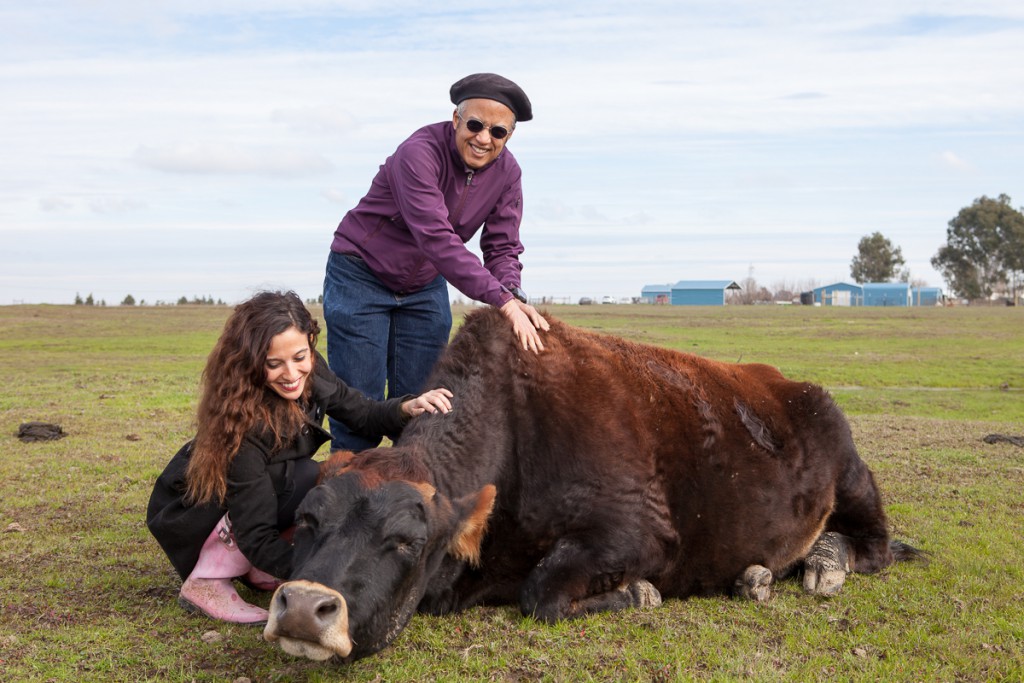 [Image: Saryta and Pax pet Brahma, a bull at PreetiRang Sanctuary. Photo by Ziggy.]
[Image: Saryta and Pax pet Brahma, a bull at PreetiRang Sanctuary. Photo by Ziggy.]
Like this:
Like Loading...
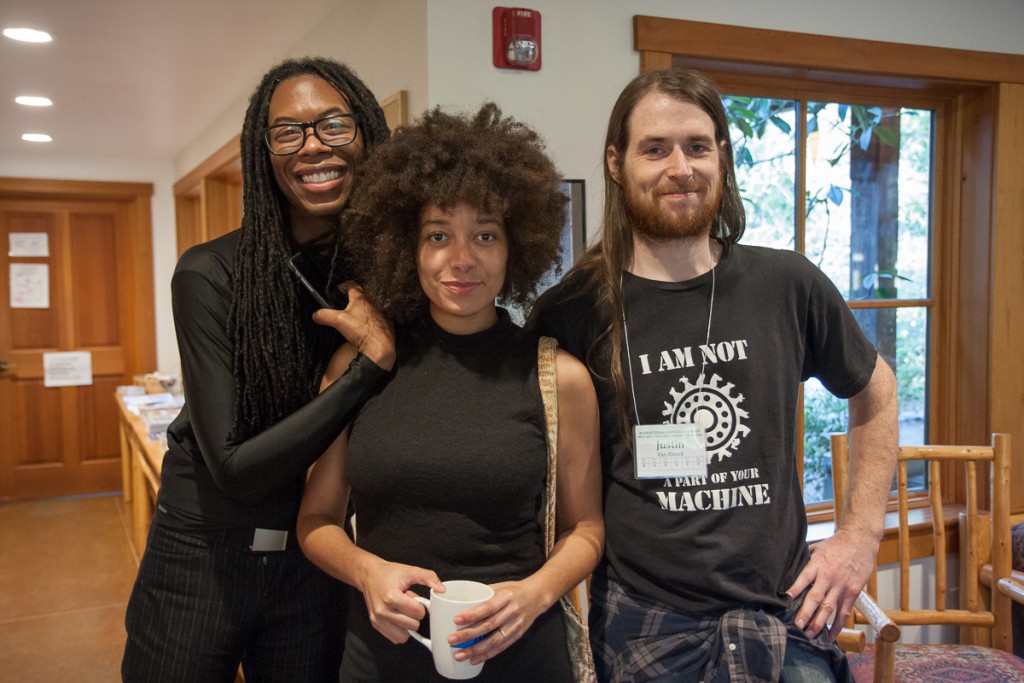 [Image: Christopher-Sebastian McJetters, Aph Ko, and Justin Van Kleeck stand together in a hallway at the Whidbey Institute.]
[Image: Christopher-Sebastian McJetters, Aph Ko, and Justin Van Kleeck stand together in a hallway at the Whidbey Institute.]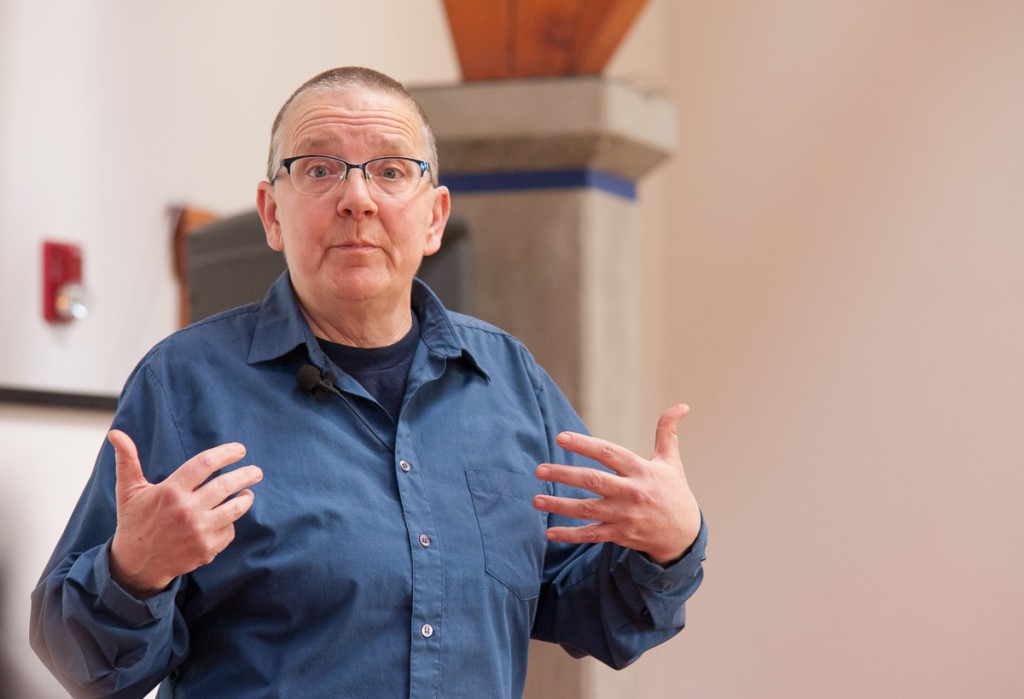 [Image: pattrice jones speaks at the Intersectional Justice Conference.]
[Image: pattrice jones speaks at the Intersectional Justice Conference.]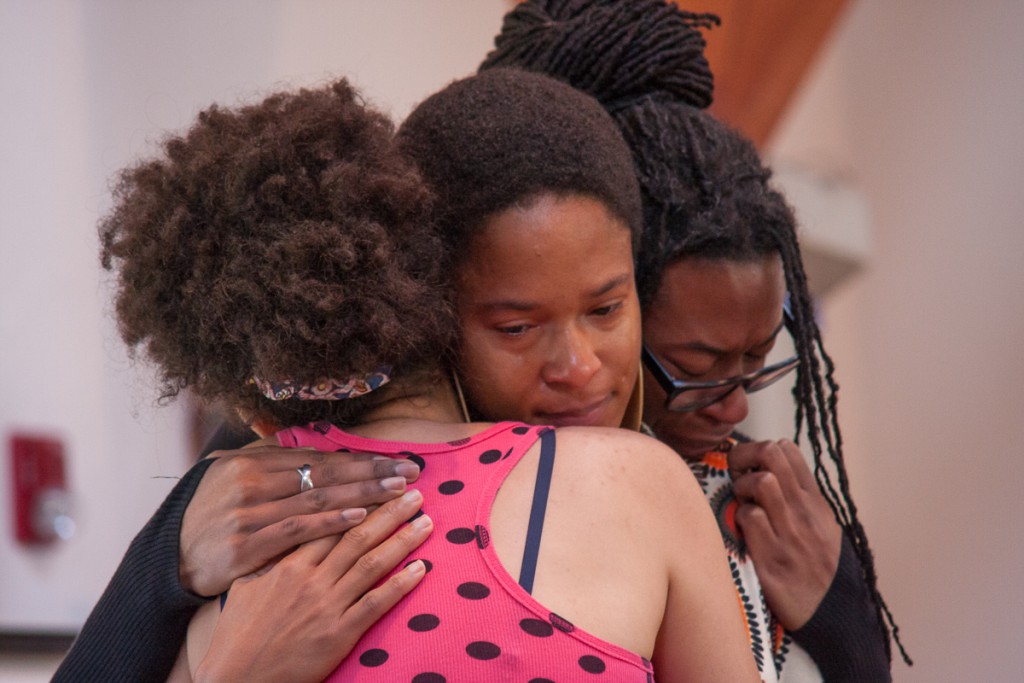 [Image: Aph Ko and Christopher-Sebastian McJetters comfort Dr. Amie Breeze Harper during her presentation at the Intersectional Justice Conference.]
[Image: Aph Ko and Christopher-Sebastian McJetters comfort Dr. Amie Breeze Harper during her presentation at the Intersectional Justice Conference.]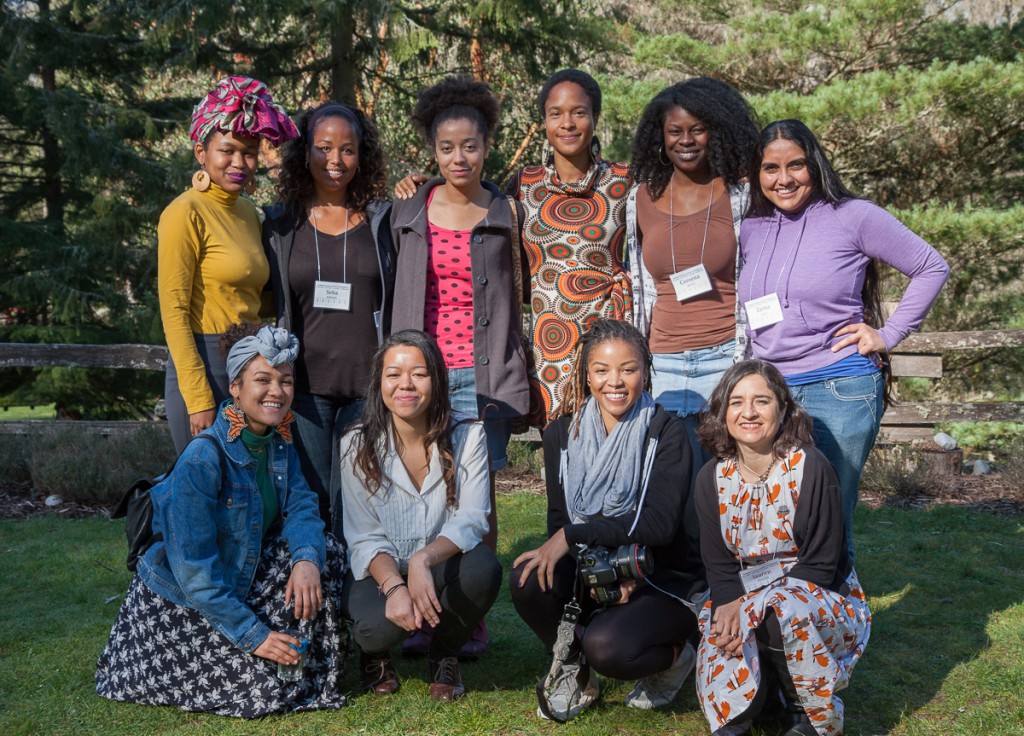 [Image: A group of women of color stand together outside the Whidbey Institute.]
[Image: A group of women of color stand together outside the Whidbey Institute.]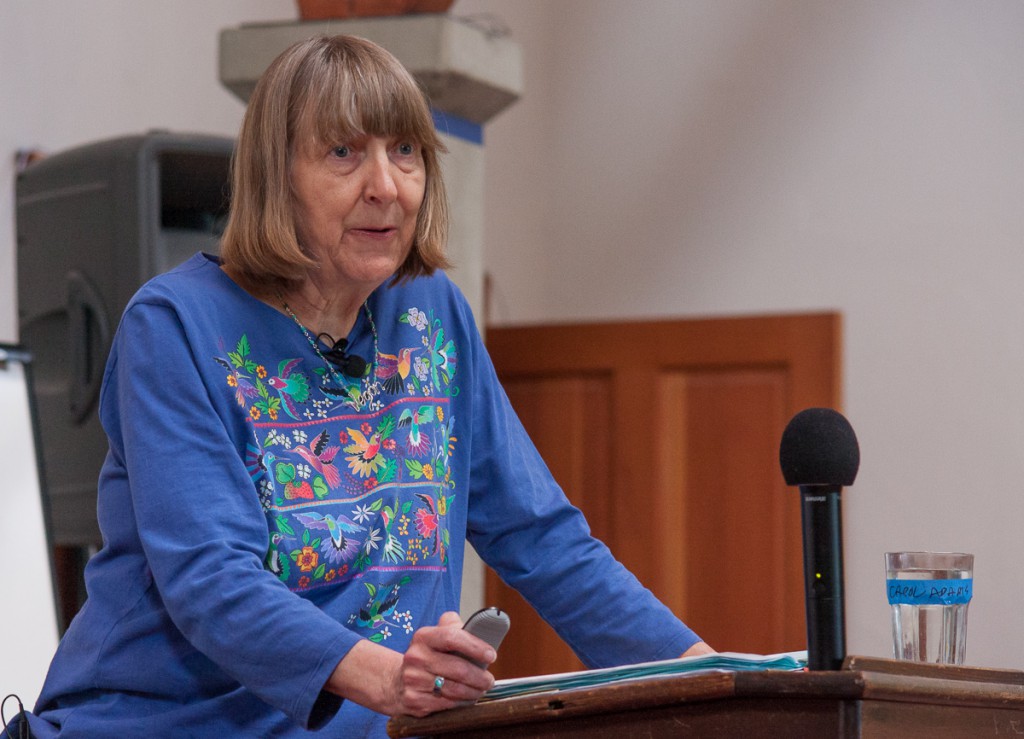 [Image: Carol J. Adams speaks at the Intersectional Justice Conference.]
[Image: Carol J. Adams speaks at the Intersectional Justice Conference.]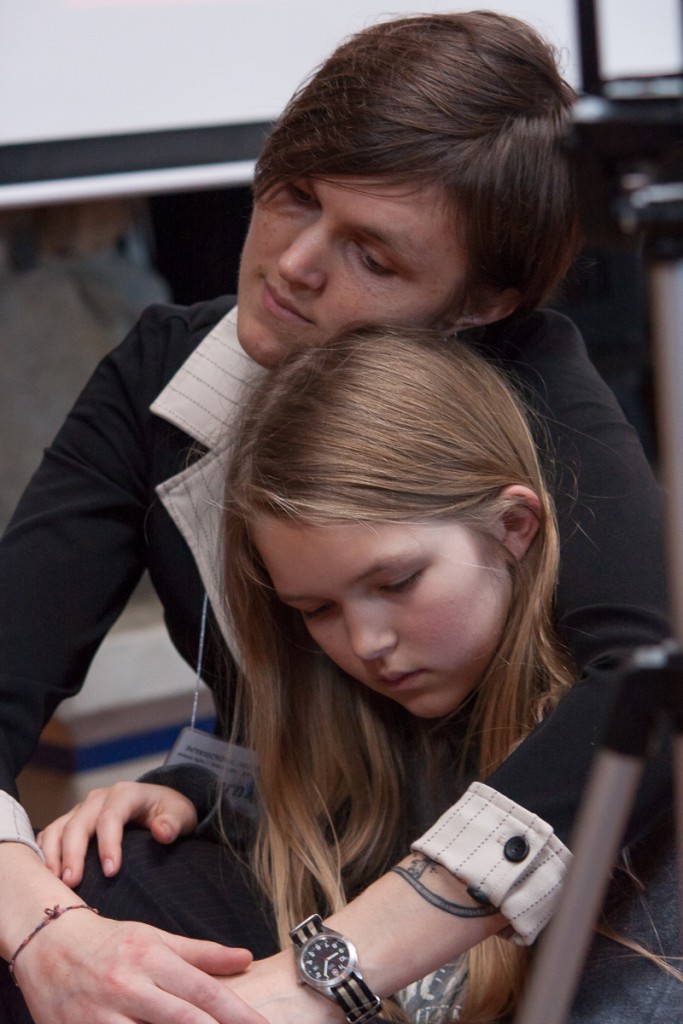 [Image: Marnie Jackson-Jones sits with her arms around her daughter.]
[Image: Marnie Jackson-Jones sits with her arms around her daughter.]